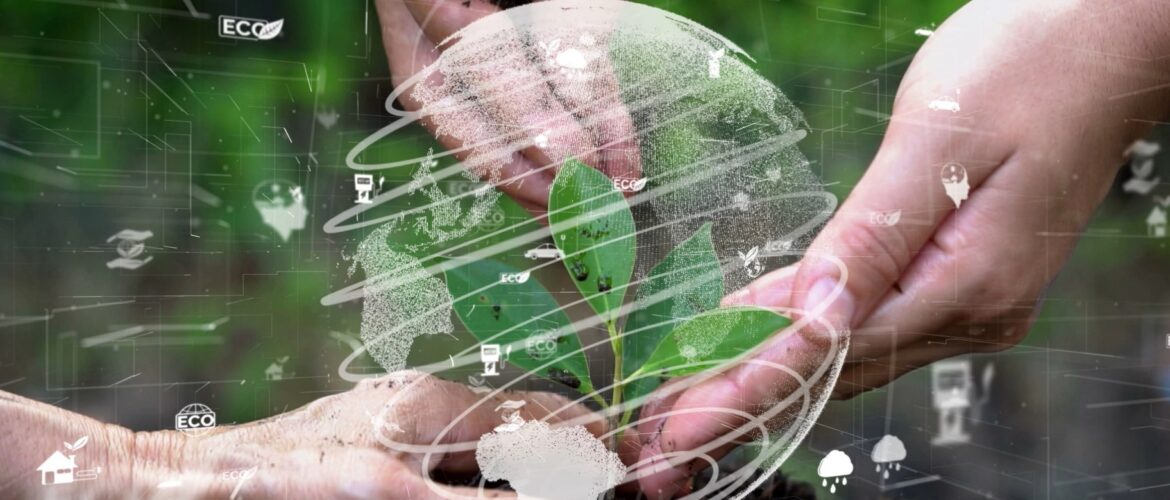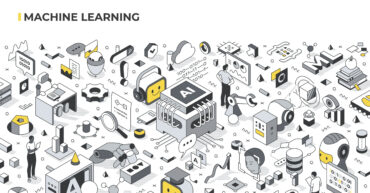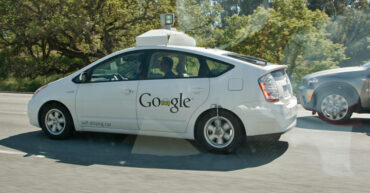AI and Sustainability: How Technology Can Help Save the Planet
- December 13, 2024
- Posted by: Kulbir Singh
- Category: Artificial Intelligence Machine Learning Robotics

Artificial intelligence and saving the planet may initially appear as two distinct realms, seemingly unrelated. However, let’s embark on a fascinating exploration to unveil the potential harmony between the two. Have you ever pondered the incredible notion of AI playing a pivotal role in safeguarding our planet? This intersection may seem improbable, yet it holds an enchanting allure.
This remarkable fusion of technology and sustainability holds immense potential for addressing pressing global challenges. With its ability to analyze vast amounts of data, make intelligent predictions, and optimize systems, AI offers a beacon of hope in the fight against climate change and the quest for a more sustainable future. In this blog post, we will embark on a fascinating exploration of how AI can become a transformative force, revolutionizing our approach to environmental conservation and paving the way to a greener, more resilient planet.
AI for Environmental Monitoring and Conservation:
AI technology can revolutionize environmental monitoring and conservation efforts. By analyzing vast amounts of data collected through remote sensing, drones, and sensors, AI algorithms can provide real-time insights into ecosystem health, wildlife behavior, and habitat preservation. These insights enable scientists, conservationists, and policymakers to make informed decisions and implement targeted strategies for protecting endangered species, managing ecosystems, and combating illegal activities like poaching and deforestation.
For example, AI-powered camera traps can identify specific species, helping researchers monitor wildlife populations and understand their behaviors. This information can inform conservation initiatives and aid in the preservation of biodiversity.
Smart Energy Management and Efficiency:
AI-powered systems offer significant opportunities for optimizing energy consumption and increasing efficiency. Through machine learning algorithms, AI can analyze data on energy usage patterns, weather conditions, and building infrastructure to provide intelligent energy management solutions. Smart grids can dynamically balance energy supply and demand, while smart homes and buildings can adjust energy usage based on occupancy and preferences, reducing waste and lowering carbon footprints.
In addition to optimizing energy usage, AI can facilitate the integration of renewable energy sources into the grid. By analyzing weather patterns and energy generation data, AI algorithms can forecast renewable energy production, helping utilities efficiently allocate energy resources.
Sustainable Agriculture and Food Production:
AI holds tremendous potential in transforming agriculture towards more sustainable practices. By leveraging AI, farmers can optimize irrigation schedules, monitor soil conditions, and predict crop diseases, enabling targeted and efficient use of resources. AI-powered systems can also facilitate precision farming, where fertilizer and pesticide usage can be optimized, and minimizing environmental impact. Additionally, AI-driven analytics can enhance supply chain management, reducing food waste and ensuring the efficient distribution of food resources.
For instance, AI can analyze satellite imagery and crop data to provide personalized recommendations for farmers, enabling them to make informed decisions about irrigation, fertilization, and pest control. This not only maximizes crop yields but also reduces water and chemical usage.
Revolutionary AI techniques have emerged that offer a sustainable solution to pest management, effectively protecting crops without the need for harmful pesticides or fertilizers. Leveraging advanced vision algorithms, AI-driven models can accurately detect and identify pests, allowing for targeted interventions while preserving the integrity of the crops. This groundbreaking approach presents a promising alternative that safeguards agricultural yields and supports ecological balance, all without compromising the health of our planet.
Climate Modeling and Prediction:
AI can play a crucial role in climate modeling and prediction, helping us better understand and anticipate the impacts of climate change. By analyzing historical data and complex climate models, AI algorithms can provide insights into changing weather patterns, sea level rise, and extreme events. This information is invaluable for policymakers, urban planners, and emergency responders, enabling them to develop effective strategies for climate adaptation and mitigation.
AI can also contribute to more accurate weather forecasting, aiding in the prediction and response to severe weather events. By analyzing real-time weather data and historical patterns, AI models can provide timely alerts and enable proactive measures to mitigate potential damages.
Waste Management and Recycling:
Efficient waste management and recycling are essential components of a sustainable future. AI can enhance waste sorting and recycling processes by utilizing computer vision and robotic systems. AI-powered algorithms can identify and sort different types of waste, improving recycling rates and reducing contamination. Additionally, AI can optimize waste collection routes, minimizing fuel consumption and emissions.
Through the use of AI, waste management systems can become more efficient, leading to reduced landfill usage and increased recycling rates. AI-powered robots can also assist in sorting and separating recyclable materials, further streamlining the recycling process.
Artificial Intelligence has emerged as a powerful tool in the pursuit of sustainability. Its ability to analyze vast amounts of data, make predictions, and optimize systems provides us with unprecedented opportunities to address environmental challenges and create a more sustainable future. By leveraging AI technologies across various sectors like environmental monitoring, energy management, agriculture, climate modeling, and waste management, we can pave the way for a greener and more resilient planet. However, it is crucial to ensure that AI is deployed ethically, with careful consideration of potential unintended consequences, and in collaboration with stakeholders to achieve the best possible outcomes. With the right approach, AI can be a game-changer in our collective efforts to save the planet.
A Large Language Model (LLM) is a type of deep learning model trained on massive text datasets to understand and generate human language.
Humans and artificial intelligence (AI) have been contrasted and compared frequently.Some worry that AI will drive people out of many professions, while others argue that AI will never fully replace human intelligence and creativity.
Autonomous vehicles, also known as self-driving cars, are like smart robots that can drive themselves without a human driver.



